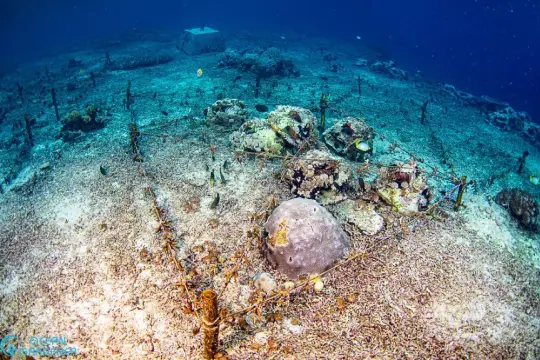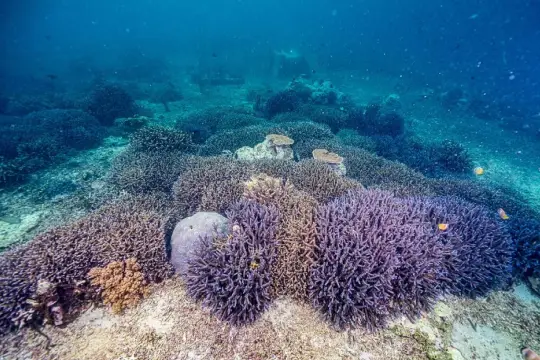JOIN US TO RESTORE THE CORAL REEFS
Choose an amount to give
OUR RESULTS
With 25 years of dedicated experience in coral aquaculture, our approach significantly improves coral survival rates by meticulously identifying the species best suited to the specific conditions of our nurseries. This deep understanding of coral ecology, combined with our proven follow-up program, empowers our partners with the necessary tools and knowledge to effectively monitor the initial coral grafts. By ensuring proper care and regular health monitoring, we maximize the success of these crucial first stages, leading to higher long-term survival rates of our restoration sites.


Your donations help support our work
Monthly Coral Planting
We harvest from our donor nurseries to outplant the surrounding reefs.
On-going Monitoring
Given the vulnerability of initial small coral grafts, regular checks are essential for early problem detection.
Coral Nursery Cleaning
We periodically remove invasive sponges or algae that can suffocate young coral grafts.
Removal of coral eating pests
Ecological imbalances promote outbreaks of coral-eating pests like Drupella snails and Crown-of-thorns starfish.
Funding Coral Research
Research how "giant" colonies can add in seeding the region with their offsprings.
Identifying New Sites
To boost overall coral reef resilience, we need to increase the overall cover coral and genetic diversity.
Spreading awareness
Raising awareness of reef decline is crucial for broader understanding and participation in conservation efforts.
Community Training
Empowering local communities to sustainably manage their reefs ensures long-term food, protection, and income.